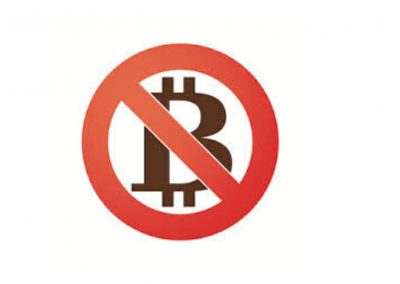There are a million reasons that small businesses fail from the predictable (nobody likes your product) to the off-the-wall (a tornado blew your warehouse three counties away). It’s true that you’ll never know if your idea is a good one until you try, but there are several big flashing warning signs you can avoid if you know where to look.
These indicators will tell you early on if your business is going to experience a failure to launch, thus saving you considerable time, money, and effort to invest in your next big idea. Here are the top five harsh reasons that your new business is going to fail.
Your product or service sucks.
It’s a brutal reality, but sometimes you’re going to have to accept that your fantastic invention is a failure. You might be brilliant and talented, but the idea is just flawed. One way to tell if you have a great business is if people are giving you money for your product or service. Just asking people if they WOULD (hypothetically) buy your product or service is not enough. They have actually to give you the money.
Here’s a test:
Get someone to pay for your product or service before even considering fancy website development, raising money, or blowing your life savings on what you think is a great idea.
What you think doesn’t matter. It’s what other people and ultimately what your clients think. If they don’t see enough value, they won’t give you the money. If they don’t give you money, you don’t have a viable business. That’s it.
You’re not seeking feedback from the right people.
Human beings are herd animals. We like to hang around with people who are like us. We love people who confirm our beliefs, values, morals, etc. It’s a lot more comfortable to spend our time and share our ideas with people who provide us with positive feedback. It makes us feel smart and accepted. There is nothing wrong with feeling smart and accepted, but if it is all you are doing, you’re not getting the full picture.
Hands down the most valuable business advice and feedback you can receive will be negative. It’s not pleasant to sit down with a group of people who rip your business plan to shreds, but if you can set your ego aside and listen to their feedback, you will gain much more value than sitting in a room full of yes men and people who don’t want to hurt your feelings.
Here’s a hint: Family and friends are usually secondary feedback channels. Every entrepreneur should be actively seeking out negative feedback.
You’re too timid and quiet in your promotion.
Anyone who has been in sales knows Zig Ziglar. He wrote a book called “Timid Salesmen Have Skinny Kids.” Entrepreneurs have to sell their products, services, and ideas constantly. Constantly. It has to become second nature and even after you have “made it,” you still have to sell.
If you don’t like sales or have a weak stomach for self-promotion, you’ve got a long hard road ahead of you. Either find a co-founder or partner with sales skills or close your business and get a job.
Here’s a test: Does the idea of making cold calls excite and energize you or make you want to hide somewhere quiet and safe? Be honest with yourself. It will save you lots of energy, time, money, and frustration. If you’re a people person, sales are going to seem like second nature to you. It’s not about making the sale; it’s about making the connection.
Even if you don’t make a customer today, if you can bond with the person you’re talking to, figure out their pain points, and give them something of value, you’ve taken a considerable step forward towards a sale. Confidence in yourself and your product gives potential customers the impression that you know what you’re talking about and that what you say is true. If you stammer, fumble, say “uh” a bunch, or can’t keep eye contact, your sales will plummet.
Your business is too complicated or confusing.
Most people need to have things broken down into bite-sized and easy-to-understand pieces. If you are offering a highly technical, cutting-edge product, you are going to need to greatly simplify the way you communicate it to your target audience.
Many great businesses sell incredibly complex solutions by making the technology disappear. While there are highly technical people (innovators and early adopters) who understand the tiny details, reaching a more significant number of people will require you to “dumb down” the words you use to promote and sell your product or service.
People should know Exactly what you do in one sentence. Try it. Can you explain your product or service in one sentence? This exercise goes along the lines of the elevator pitch that you learn about in business school or from any number of business seminars you might have attended. You get in the elevator with a potential client, and you’ve got about 60 seconds of their undivided attention before the car dings at the next floor. What do you tell them that’s going to make them believe and want to learn more about your product?
You might be lazy or lack guts.
There is no shortcut to success as a business owner or entrepreneur. You have to put your time in, and there is no way around this. If your plan is to hit it big with an overnight success that requires little-to-no effort, you should seriously consider not starting a business. What you’re looking for is a winning lottery ticket or tripping over a rock while walking your dog and discovering an untapped oil well below.
That’s nowhere close to how entrepreneurship works. You have to be prepared to consistently fail, fall, and get back up and take rejection after rejection. If this sounds good to you, then starting is still probably a bad idea, but at least you have been warned.










